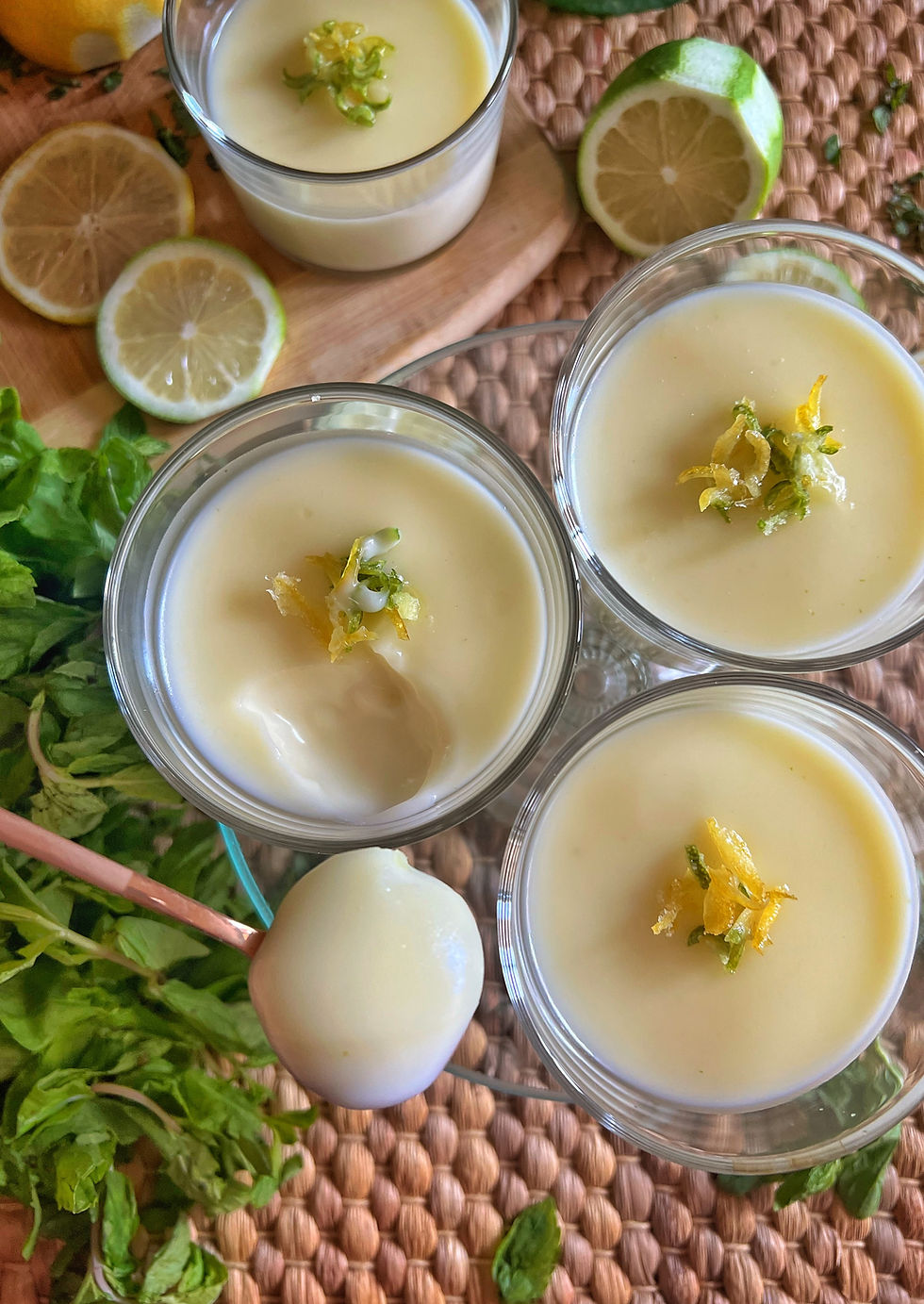Soft Skillet Pita Bread
- Admin
- Jan 12, 2015
- 3 min read

I’m not sure what it is about freshly baked bread and it’s warm yeasty scent that’s always so very appealing. I’ve made this bread for countless office breakfasts, friendly gatherings, and brunch parties, and each time, it’s been a hit. Not exactly Lebanese or Greek, and also not exactly a tortilla, this ‘pita’ bread sort of transcends all the cultures and has an identity of it’s own. The dough takes some time to rise, but once it’s ready, it comes together fairly fast on the stovetop, bubbles puffing up in the middle and turning gloriously golden. With only 4 ingredients and some patience, you'll have the softest pita bread you've ever had without even turning on the oven.
My only word of advice, and don’t say I didn’t tell you – do NOT use a fancy skillet. As you make these, the heat torches the flour permanently into the skillet, making it extremely difficult to clean. You’ll end up with scratches and permanently burnt bits. I always use an old battered die-cast skillet which I keep only for making these amazing loaves.
This recipe makes 8, easily doubled if you have a party or want to freeze some for later. I’ve found the frozen bread thaws like it’s still freshly baked, so you can’t go wrong!
Ingredients:
• 1 cup hot, but not boiling, water
• 2 1/2 cups flour, plus 1/2 a cup on standby for kneading
• 2 tablespoons dry active yeast
• 1 teaspoon salt
• 1 tablespoon olive oil, plus one more for greasing
Method:
Mix the water and yeast together in the bowl and leave it for a few minutes until the yeast is dissolved.
Add 2 1/2 cups of the flour, salt, and olive oil. Mix with a metal spoon until incorporated, and then knead into the bowl with your hands until the dough no longer sticks to the sides of the bowl.
Sprinkle some flour onto a surface, and remove dough from bowl, kneading for about 5 minutes until dough is smooth and elastic. (Add a little more flour if necessary to keep dough from sticking to your hands or your surface, but not too much)
In the same bowl you mixed the dough in, slather the remaining spoon of olive oil around on the inside with your hands until the sides a coated. Set the dough in the bowl and turn it around a few times until the dough is also coated with some of the oil.
Cover the bowl loosely with cling-film and set it somewhere warm to rise. Let the dough rise until it's doubled in size, usually about 1 hour.


Punch down dough, and turn it onto a well-floured surface. Divide the dough into 8 equal parts.
Warm your skillet over medium-high heat until it’s hot. Drizzle a little oil in the pan and wipe off the excess.
Flatten one piece into a disk with your hands, and using a rolling pin, roll out the disk until it is about 4 mm thick. As you roll it, lift the disk and turn it over a few times to make sure it doesn’t stick to the counter surface.

Immediately place your rolled-out dough onto the skillet and let it bake for about 30- 40 seconds. Bubbles will start to form. Flip it over and cook it on the other side for about a minute, until the under-side starts to look toasty. Flip it over a gain. The bread should start to puff up at this point.
Remove from heat and repeat with the other disks. Keep cooked pitas covered with a clean dishtowel while cooking the rest of the pitas, until you're ready to serve.







Comments